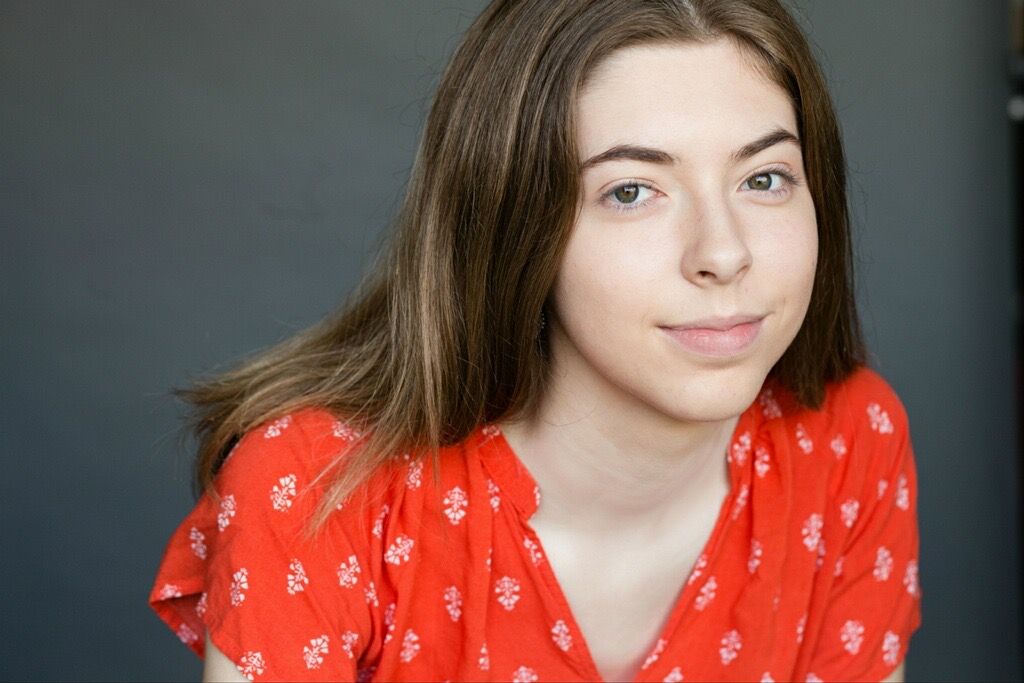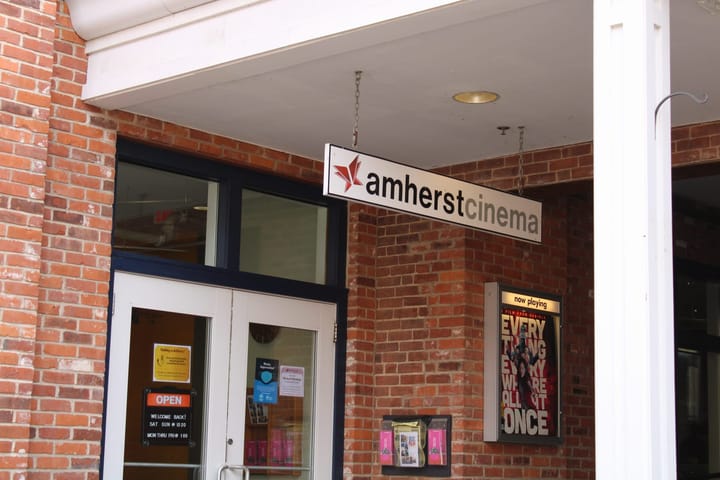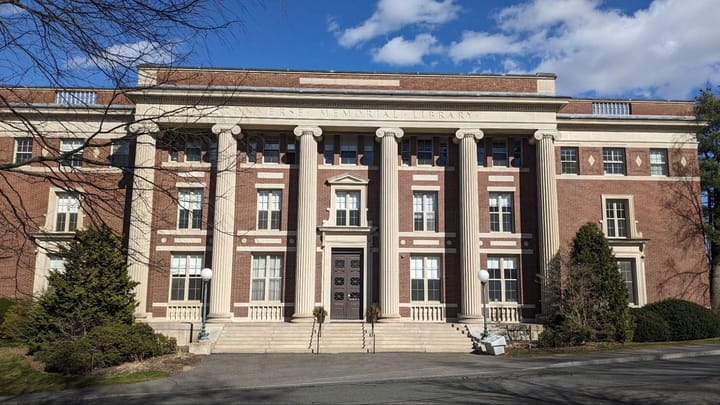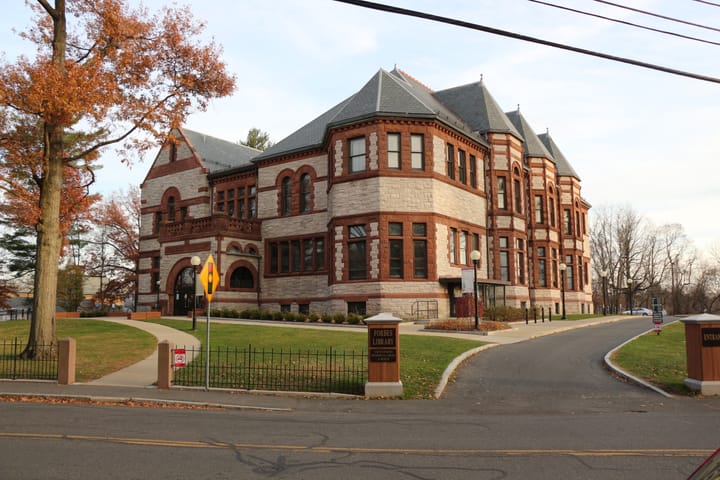Thoughts on Theses: Lena Lamer
Lena Lamer is a Film and Media Studies (FAMS) major. Her thesis looks at scent as an underdeveloped and generally divisive sensory component of film and television. Her thesis advisors are Professors of English in Film and Media Studies Amelie Hastie and Joshua Guilford.

Lena Lamer is a Film and Media Studies (FAMS) major. Her thesis looks at scent as an underdeveloped and generally divisive sensory component of film and television. Her thesis advisors are Professors of English in Film and Media Studies Amelie Hastie and Joshua Guilford.
Q: What is your thesis about?
A: I'm doing a FAMS [Film and Media Studies] thesis. I’m one of the three people doing a FAMS thesis this year, and I'm talking about smells and film. So [it’s] half smells in films, and the other half — [involves the] 4D film experience. And then I'm hoping to make some kind of installation next semester to go along with it.
Q: Are you focusing on 4D movies or smell in general?
A: I think smell in general, but the 4D or Smell-O-Vision aspect will be a component of it. I'm trying to balance serious academic stuff and also very silly [stuff]. When I was deciding on my topic, I was like, if I'm going to be doing this, I might as well have fun!
Q: When did you become interested in studying the perception of smell?
A: I worked at an amusement park in high school, which is kind of a terrible job, but part of [where my interest comes from] is that theme parks are really good at building the experience, [and] smell’s a very important part of it. I didn't work at Disneyland or anything, which is a lot more intense, but scent memory is super important for theme parks. You also have stuff like 4D simulation rides. I'm from the LA area, so I did that kind of stuff all the time growing up. I've been doing more research into it this semester, [and] theme parks and film have evolved together, which is an interesting thing. Film began as this spectacle at a World Fair, and then they sort of diverged. But there's a lot of media studies out there about film, museums and theme parks, which I've never taken a class on, but is a sub-genre.
Q: There are conspiracy theories that theme parks will put out fake scents to lure people in — do you know if that’s true?
A: Well, the [amusement park that] I worked in was pretty rinky. But there's a reason you want to eat food in certain areas of the parks: because the smell is there. It's not as intense as malls, where each store has its own smell that kind of makes you want to buy things. When I’ve been reading, I have also fallen deep into conspiracy stuff. And then, [when I do], I [remember] to step back because of something that my advisor said that was very enlightening to me. She said, ‘These are all really cool ideas, but how do they relate to Film and Media Studies?’ I was like, ‘Oh, shoot, they don't at all.’ But it's been super interesting to kind of lose myself in that kind of reading.
Q: Who is your thesis advisor, and does she have any experience with your thesis topic?
A: My advisor is Professor [of English in Film and Media Studies and Elizabeth W. Bruss Reader Amelie] Hastie.
She actually lost her sense of smell a few years ago, so she's done her own independent research as a film historian and researcher, and also as someone who no longer has that sense memory. So she actually has quite a foundation in sensory film scholarship.
My second semester advisor will be Professor [of English in Film and Media Studies Joshua] Guilford, who I think specializes in stuff like putting together installations and experimental film. I’ve had one class with him, [but] I don't know him super well.
Q: Have you watched a lot of 4D movies, or is the area a new interest that you would like to delve into?
A: More the latter. They’re kind of few and far between, and I think I kind of made it a challenge for myself because a lot of these films you have to watch in specific circumstances that I can't really do on my own. But there are a couple movies, like John Waters, the director, has a film called “Polyester,” which was made with a scratch-and-sniff card to go along with it, which is a bit more accessible. I have a copy of that, that I'm waiting to watch with some friends.
Q: Would you ever manufacture your own 4D movie?
A: I think so. In FAMS, you have to do a written and a creative portion of your project. For the creative [portion], I've always thought I'd like to figure out something that's not super lame, where it’s just like ‘smell this apple and watch this clip, oh wow that’s crazy.’ But I'm going to maybe try over Interterms — there's a place in LA called the Institute for Art and Olfaction, where you can take perfumery classes in conjunction with art making. I’ve been thinking that that would be a cool place to [study] because I feel left to my own devices here, I really don't have the skills [that I would need to create a 4D movie].
Q: What does working on your particular thesis look like?
A: Because I have two different thesis advisors for the fall and the spring, my fall is going to be very reading- and viewing- intensive, and writing. The writing’s going to take either an exploratory or academic form. I don't know what's going to happen, but I'm really hoping to be able to make some film projects in some way — [I would like to make] something cool [that] I can be proud of and feel like it says something.
Q: What do you hope to accomplish by writing this thesis?
A: Well, the [general] consensus right now seems to be that smells do not belong in movies. [Scents] are very off-putting, other than in a novelty sense. So I think just finding and maybe unpacking smell a bit, and negotiating the space in films in a way that it’s not traditionally experienced would be cool. Also just to have fun!4D movie?
Q: Earlier you mentioned scent memory — how does that relate to the experience of watching a film?
A: The thing about watching a movie generally is that you're immersed in the experience: visually and auditorily. But your senses that are closer to your body, like touch and smell and taste are all within your real world. And that's what people are used to. So even your “scent memory” of a film is probably the smell of theater popcorn or whatever you like to eat when you watch a movie, or your living room. [But for] the smell of the movie [to] trigger that memory, what would that mean? There are also schools of thought [that say] smells are their own movies, because you smell something and then have an immediate image in your head.
Q: What about smell is important to you versus, for example, sound?
A: I am also looking into taste, because they go hand in hand. But Film Studies is really based on visuals and sounds, so I think there's just a lot there already.
Q: Has your thesis made you more aware of scent in day-to-day life now?
A: Yeah, and also scent while watching movies [too]! I’m not sure if it's putting me at a disadvantage now, though. All that I'm thinking about while watching movies now is scent. I'm no longer a normal viewer.
Q: You mentioned the movie ‘Polyester’ — are there any other movies that make you really think about scent?
A: There's this Japanese movie called ‘Tampopo.’ It’s a super weird movie about cooking and eating ramen. My thinking is that food [and] smell [are inherently a part of]watching food movies, but that I need to broaden into stuff that maybe isn't so expected. I'm also going to be analyzing YouTube cooking TV shows and manufactured spaces for smells that you can’t smell. Because something I've thought about too is [that] films have to represent smell through sound and visuals, so how do you make it a super sensory experience without actually being able to smell?
Q: Is there anything else you want to share about your thesis?
A: If anyone can think of any good smells in movies, please let me know because I’m looking for them. They seem to be pretty [scarce], so I’ll take all that I can get.





Comments ()